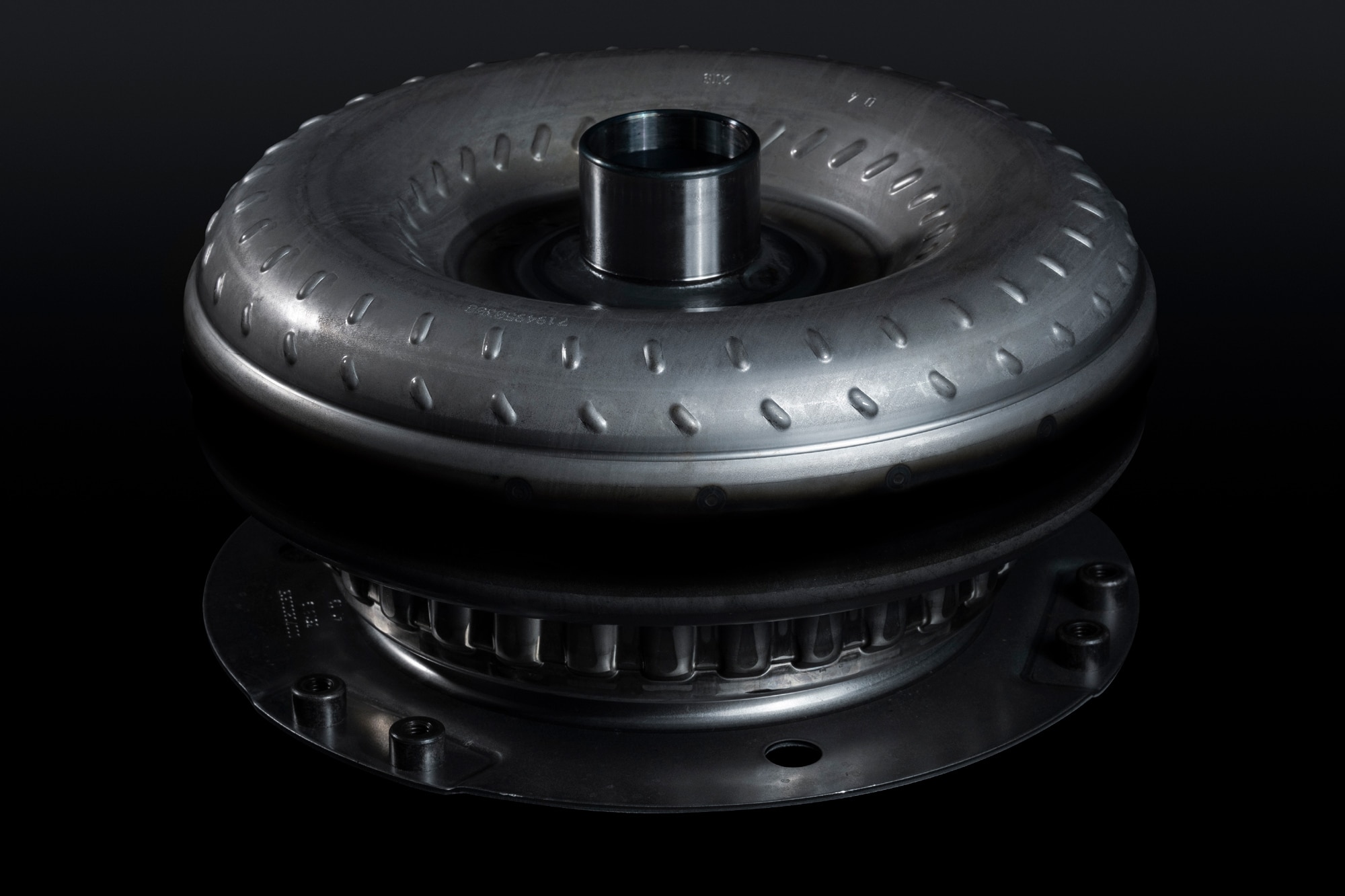What Is a Torque Converter?
This component is crucial to the smooth operation of most automatic transmissions.
 Dodge
Dodge
QuickTakes:
The powerplant in a vehicle produces rotational energy called torque. The transmission is then responsible for sending that energy to the wheels. To do that, a traditional automatic transmission — found in everything from a Dodge Challenger to a Volkswagen Jetta — relies on a device called a torque converter that sits between it and the engine.
This important component acts much like the clutch of a manual transmission in that it transmits power from the engine to the transmission and thereby gets your vehicle rolling.
The Torque Converter Helps an Automatic-Transmission Vehicle Move
A torque converter looks a bit like a metallic donut. Filled with fluid, it houses a pair of turbine "fans" that face each other. One fan, called the impeller, is spun by a shaft connected directly to the engine, while the other is connected to the transmission. At the center of the torque converter is a component called the stator.
As the engine's revolutions rise, the impeller spins faster, acting as a pump, which causes the fluid to spin the second turbine, thus transmitting the engine's power to the transmission and ultimately to the wheels. The stator prevents fluid from going the opposite direction, entering the impeller, and slowing it down.
The process forms a fluid coupling between the engine and the transmission that gets your car moving. It's also what allows you to sit at a light with your foot on the brake without stalling. When your car is stopped, the impeller doesn't rotate fast enough to affect the turbine, allowing the engine to keep turning without driving your wheels.
Torque Converters Can Fail Independently of Transmissions
As with any enclosed automotive system that holds fluids and moving parts, heat is the enemy. Over time, excess heat caused by driving — whether it's due to high mileage, aggressive operation, or the stress of hauling heavy loads — can cause the fluid inside a torque converter to break down, become contaminated, and no longer effectively transmit energy or protect the various components.
It's also possible for the seals in a torque converter to wear out or for the mechanical clutches that control the movement of its turbines to break. In worst-case scenarios, the blades on the turbines can crack or lose their shape.
Signs Your Torque Converter Is Failing
There are several common symptoms of a failing torque converter. One of the most common is the sensation that the transmission is slipping, when the engine's revs rise without producing a steady increase in power or acceleration.
If your transmission is overheating during normal driving, it could be because torque converter slip is causing excess heat. You might also notice what's called torque-converter shudder. This happens at certain speeds — usually around 45 mph — and you'll feel it as a brief shake, as if you've hit a bump in the road.
Poor fuel economy can also be a sign that your torque converter is compromised. Internal damage can reduce the efficiency with which power is transferred, potentially decreasing gas mileage.
Torque converter problems are easy to mistake for transmission trouble. The good news is that a torque converter is cheaper to replace than a transmission. The repair usually runs between $600 and $1,000.



